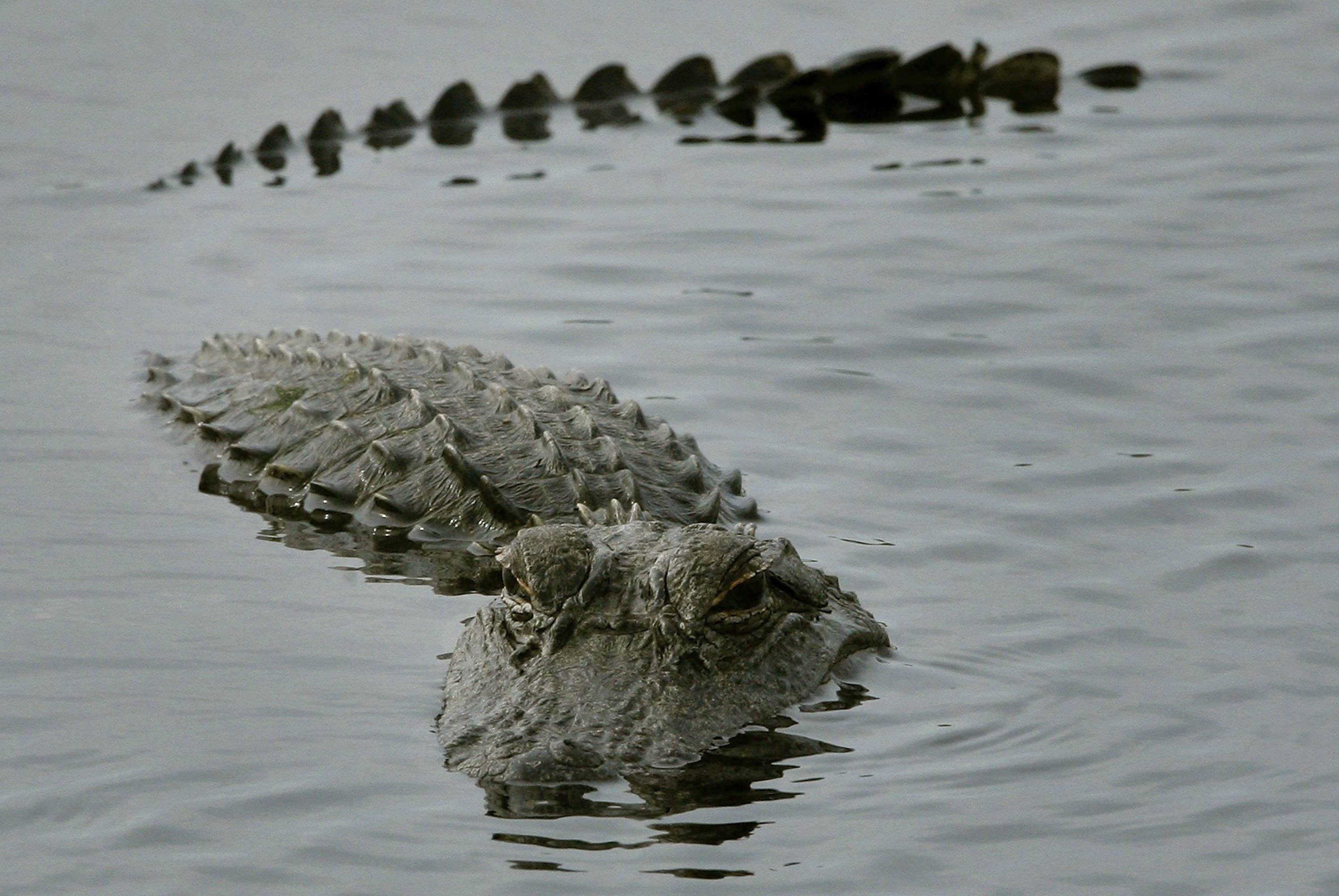Louisiana wants some gator aid
A pending ban on alligator products has lawmakers scrambling

A united Louisiana congressional delegation is lobbying a key California official to try to avert a pending Golden State ban on the “importation, possession or sale of alligator and crocodile products.”
Gators are big business in Louisiana. The state Department of Wildlife and Fisheries estimates alligator harvesting is a $50 million-a-year industry in the state. It says ranchers collect over 350,000 alligator eggs, trappers harvest over 28,000 wild alligators and farmers harvest over 250,000 farm-raised alligators annually.
Raw meat and hide values are estimated at over $10 million for the wild harvest and over $40 million for the farm harvest each year. The state’s industry is concentrated in the Gulf Coast districts represented by Republicans Steve Scalise and Clay Higgins, but there are alligator farmers in each of the state’s House districts but Democrat Cedric Richmond’s in New Orleans.
The lawmakers, who want Eduardo Garcia, chairman of the California Assembly Committee on Water, Parks, and Wildlife, to reject the impending ban, argue that alligator sales help fund conservation of the animals. They want him to back a bill proposed by Randy Voepel, an assemblyman from the Inland Empire southeast of Los Angeles, that would repeal the ban.
The Louisiana lawmakers note that alligators are not an endangered species and that “the alligator trade is intensively monitored and controlled by state and federal agencies.”
California banned the sale of alligator parts from the mid-1970s until 2006, when state lawmakers passed legislation allowing it. But it set a sunset date when sales would again have to stop. The state has since extended sales twice, in 2009 and again in 2014, when it established the current sunset date of Jan. 1, 2020.
Proponents of keeping the ban are led by the Humane Society of the United States, an animal welfare group that in past years has convinced California lawmakers to ban the sale of shark fins for use in soups and to prohibit foie gras from being served in restaurants.
Still, Louisiana has some allies in California, including the California Retailers Association and the Beverly Hills Chamber of Commerce.
Beverly Hills, of course, would be hurt by a ban on alligator products. Many high-fashion outlets there sell handbags, belts, boots and jackets made of alligator leather; the Brioni store on Rodeo Drive, for example, offers an alligator jacket for $85,000, according to Forbes magazine.
And at the House of Bijan, billed as the most expensive store in the world, owner Nicolas Bijan told GQ magazine last year that one of his clients, a member of a royal family in the Middle East, asked him to customize the interior of his 959 Porsche with alligator skin.
Banging gravel, pseudoscience and texts from mom: Congressional Hits and Misses





